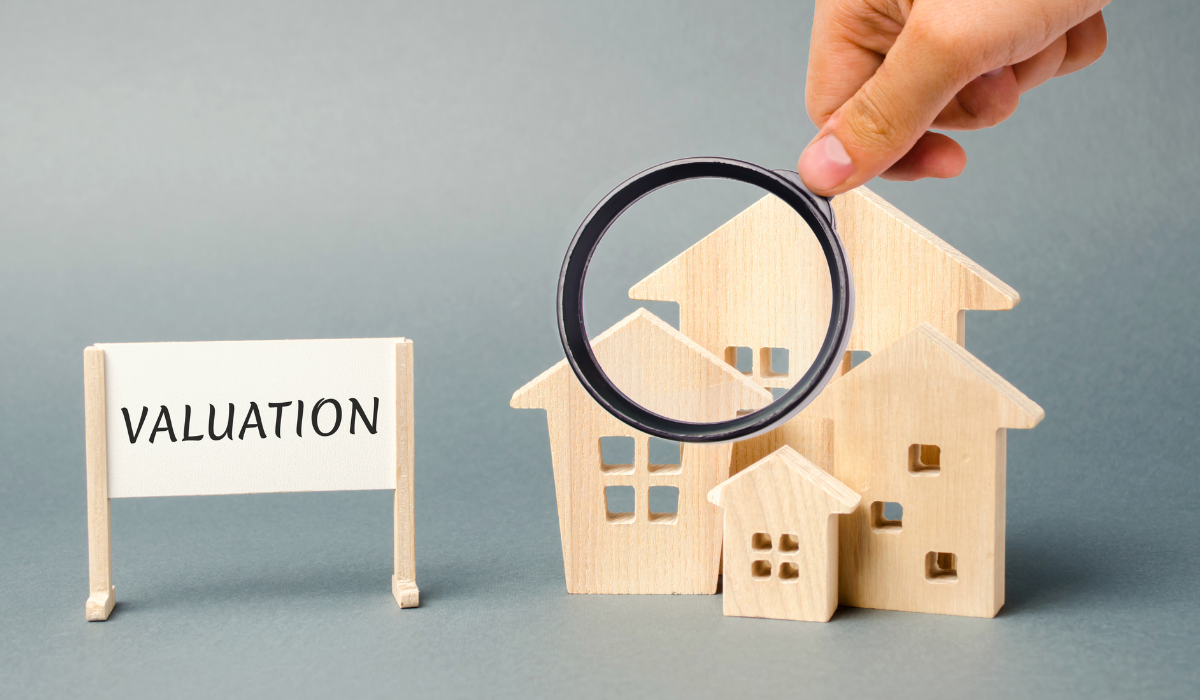Certified vs. Non-Certified Valuation – What’s the Real Difference?
Not sure if you need a certified estate valuation? Let’s talk about what it means and why it matters.

In this article, I want to have a very real and down-to-earth conversation about something that affects many families but rarely receives the attention it deserves: estate valuation.
More specifically, we’re going to unpack the difference between certified and non-certified estate valuations—and why this one detail can make a world of difference in some of life’s most sensitive moments.
Whether you’re helping a loved one downsize, managing an estate after a loss, or planning ahead for your own legacy, knowing the value of what you own—and doing it the right way—matters more than you might think.
Let’s Start with the Basics: What Is Estate Valuation?
First things first—what do we mean by “estate valuation”?
Estate valuation is the process of figuring out how much a person’s belongings are worth.
That includes everything from the house, the car, the artwork on the walls, and the jewelry in the safe, to the retirement accounts, antiques, furniture, collectibles, and even business interests.
When someone passes away, this total value—also known as the gross estate—is used to:
- Determine if estate taxes are owed
- Guide how the estate is divided among beneficiaries.
- Help courts oversee probate.
- Provide accurate information for financial planning, wills, or trusts.
In other words, it’s not just about price tags—it’s about responsibility, legal protection, and fairness.
So, What’s the Big Deal About Certified vs. Non-Certified?
Now, here’s where the confusion sets in for many folks. You might think that getting an estimate from a realtor, an estate sale company, or even Googling “how much is this vase worth” is good enough.
But when it comes to official matters like probate court, IRS filings, and legal disputes, that’s not just risky—it could cost you big time.
The main difference comes down to this:
- A
certified estate valuation is done by a credentialed professional, using legal and industry standards.
- A
non-certified valuation is an informal estimate, typically not accepted in court, by the IRS, or for official documents.
Let’s take a closer look.
What Is a Certified Estate Valuation?
When we say “certified,” we mean the valuation was conducted by someone who has formal training, recognized credentials, and adheres to strict ethical guidelines.
These professionals don’t just eyeball the value—they use research, market data, condition assessments, and standard formulas to arrive at fair market value.
Examples of Certified Appraisers:
- Accredited members of the
American Society of Appraisers (ASA)
- Certified by the
Appraisers Association of America (AAA)
- Professionals who follow the
Uniform Standards of Professional Appraisal Practice (USPAP)
- Licensed real estate or business appraisers
What’s Included in a Certified Appraisal?
- A full written report with photos, descriptions, and comparables
- The method used to determine the value
- A legally defensible fair market value
- A signed statement of the appraiser’s credentials
- A report that meets IRS and court standards
These certified appraisals are legally accepted and respected because they follow professional standards and provide supporting documentation.
What Is a Non-Certified Estate Valuation?
Now let’s talk about non-certified valuations. These are often done by well-meaning people—real estate agents, auction houses, or even family friends with “an eye for antiques.”
They might offer a good-faith estimate or a ballpark figure, but these numbers don’t come with legal backing.
Examples of Non-Certified Valuations:
- A real estate agent’s market opinion
- A collectibles dealer giving a guess on value
- An estate sale company estimating based on experience
- An online tool estimating the value of a vehicle or property
While this may be helpful for internal planning or early decision-making, these valuations are not legally sound.
So, Why Does Certification Matter?
This isn’t just a technicality—it’s often the difference between success and stress when handling an estate.
Let me walk you through why choosing a certified valuation can be the smarter move:
1. Legal Protection
If the estate enters probate—or if any heirs dispute what belongs to whom—you’re going to need documentation that can hold up in court. Judges and attorneys want certified numbers, not guestimates.
2. IRS Compliance
When estates are large enough to owe taxes, the IRS requires qualified appraisals. Submitting a non-certified report could lead to an audit, fines, or worse, penalties for misreporting asset values.
3. Peace Between Heirs
Let’s be honest—money can change people. Disputes over who gets what or how much it’s worth are common in family estates. A certified appraisal brings objectivity and maintains impartiality.
4. True Market Value
A certified appraiser doesn’t inflate or deflate values. Their job is to give an accurate figure based on current market conditions, not emotional attachment or guesswork.
When Can a Non-Certified Valuation Be Enough?
That said, there are some scenarios where a non-certified valuation might work just fine:
- You’re just getting started and want a rough estimate before hiring professionals.
- The estate is small, well below tax thresholds, and there are no disputes.
- The heirs agree on asset distribution and don’t need court involvement.
- You’re selling personal property (not for tax or court purposes), and you just want help with pricing.
Still, if the estate may go through probate or require IRS reporting, get certified support early.
Hiring a Professional: Who Should You Trust?
Let’s talk about how to find someone who knows what they’re doing—and will treat the estate with the respect it deserves.
✅ Look for Credentials
Make sure your appraiser is certified by a reputable organization like ASA, AAA, ISA, or has a license in their specialty (like real estate or business valuation).
✅ Match the Appraiser to the Asset
When it comes to valuing your assets, it's important to choose the right professional for the job.
You wouldn't ask a real estate agent to appraise a piece of fine art, or rely on a car dealership to assess the value of your grandmother's antique jewelry.
Each type of asset requires a specific kind of expert to ensure an accurate and credible valuation.
For real estate, you should work with a Certified Real Estate Appraiser.
When it comes to jewelry, a GIA-certified gemologist is the trusted professional.
For artwork, especially valuable or historical pieces, an Accredited Fine Art Appraiser will provide the proper expertise.
If you're valuing business interests, such as shares or ownership stakes, a Certified Business Valuator, like one accredited by NACVA, is essential.
Lastly, for antiques and furnishings, look for an appraiser who is a member of professional organizations like ISA (International Society of Appraisers) or AAA (Appraisers Association of America).
Choosing the right appraiser ensures your assets are evaluated correctly and can be confidently used for legal, financial, or personal decisions.
✅ Consider Full-Service Experts: The Perfect Piece Estate Liquidators
If you’re in the Atlanta area—or anywhere looking for a high-caliber solution—The Perfect Piece Estate Liquidators offers something rare: a one-stop, compassionate service backed by credentials.
Led by Robin Trammell, a licensed Realtor and Accredited Estate Liquidator with the American Society of Estate Liquidators, The Perfect Piece helps families streamline the entire process—from handling the belongings in the home to preparing and selling the house itself.
They’re known for:
- Professionalism and empathy
- Experience since 2008
- The highest level of industry distinction
- Taking the burden off your shoulders during a difficult time
You can learn more at theperfectpieceatlanta.com.
Certified valuation and non-certified valuation differ significantly in terms of reliability, legality, and intended use.
A certified valuation is conducted by a trained, certified appraiser who follows recognized industry standards.
Because of its credibility, it is accepted by courts and the IRS, making it legally defensible.
Certified valuations are especially useful in legal filings, tax matters, and estate disputes where accuracy and compliance are critical.
They offer a high level of accuracy, ensuring the value reported can withstand legal and financial scrutiny.
On the other hand, a non-certified valuation is usually performed by a generalist or someone without professional certification.
These valuations are often informal, and while they may be helpful for internal planning or rough estimates, they are not accepted by courts or the IRS and may not hold up in legal situations.
As such, they are considered risky to use in probate or official matters, since their accuracy can vary widely depending on the methods and knowledge of the person conducting it.
Let’s Recap: Certified vs. Non-Certified at a Glance
Final Thoughts: Don’t Leave It to Guesswork
If you’ve made it this far, here’s the most important message I want you to take away:
When it comes to your estate—or the estate of a loved one—do it right the first time.
A certified valuation gives you clarity, protection, and peace of mind.
It’s more than numbers on a page. It’s about honoring someone’s legacy, avoiding conflict, and staying on the right side of the law.
Call to Action
Are you ready to take the next step in managing an estate with confidence?
Whether you need a certified appraisal, estate liquidation, or real estate support, partner with trusted professionals who can guide you through every step.
Visit The Perfect Piece Estate Liquidators to learn how Robin Trammell and her experienced team can help you simplify the process with grace, compassion, and industry expertise.
Frequently Asked Questions (FAQs)
What is a certified estate appraisal, and why is it important?
A certified estate appraisal is a formal valuation conducted by a trained and credentialed appraiser. It's important because it’s legally accepted by courts and the IRS. Certified appraisals use standardized methods and documentation to ensure accuracy, compliance, and fairness, especially critical during probate or tax reporting.
Do I really need a certified appraisal for an estate?
If the estate involves legal processes like probate, IRS filings, or is likely to be disputed among heirs, then yes, you absolutely need a certified appraisal. It protects you legally and financially. For informal planning or when all parties agree, a non-certified estimate might be okay temporarily.
What happens if I use a non-certified valuation for estate taxes?
Using a non-certified valuation can trigger an IRS audit, result in financial penalties, and delay the estate resolution process. The IRS requires certified, qualified appraisals for estates that exceed tax thresholds or include high-value assets, such as real estate, artwork, or collectibles.
Who is qualified to do a certified estate appraisal?
Only licensed or credentialed professionals from recognized organizations like the American Society of Appraisers (ASA), Appraisers Association of America (AAA), or those compliant with USPAP standards are qualified. Always verify credentials before hiring.
What types of assets require a certified appraisal in an estate?
Assets such as real estate, jewelry, fine art, antiques, business interests, and high-value collectibles should all be appraised by certified professionals. Each asset type may require a different specialist to ensure accurate and defensible valuations.











